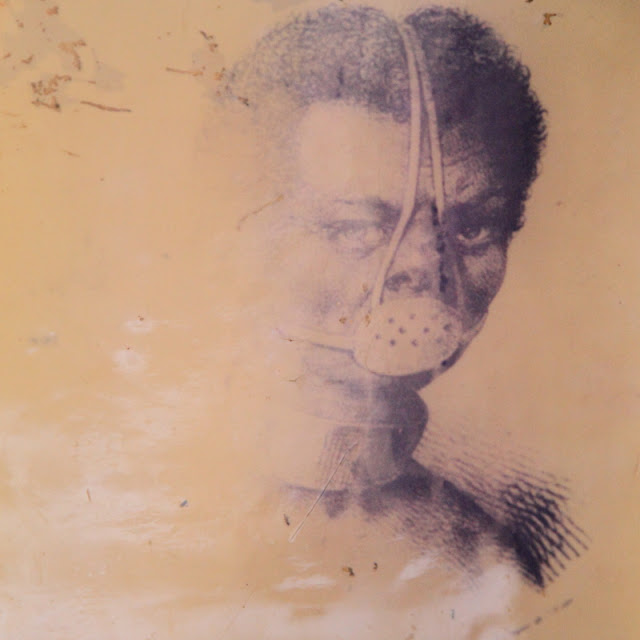 |
| the point of no return in Badagry |
Badagry lies on the sea just a few kilometers east from the border between Nigeria and Benin. It is a peaceful town with a past. It was one of the place where slave traders met with buyers. The slaves were quartered in a compound by the lagoon side in small stuffy rooms. The guide was saying 40 people were locked in a cell of roughly 10 to 15 square meters. No bathroom, no place to ease yourself, just the ground. The low ceiling was preventing a good aeration and most definitely the rise of heat.
Slaves were usually captured by local tribes from warring neighbours: selling prisoners to Europeans was a good way to dispose of them for goods in exchange such as large umbrellas, guns, porcelain, etc... For those sold, they had to face the journey from their cell to the sea, at the Point of no Return, where they would board on ships to be ferried away into the unknown.
 |
| one last sip before... |
First they had to cross the lagoon on a boat and then walk a kilometer and a half with their chains over the slave route. There was one mandatory stop at the drinking station (the slave spirit attenuation well) where they had to drink, whether they like it or not, before boarding on the ship. They would be severely beaten if they didn't. Most of them had never see the sea before. They were most probably terrified by the waves which made getting on the ship not that easy.
 |
| when the talking ain't easy |
The museum was displaying all sorts of chains and taming tools, all more horrible than the others.



Comments
Post a Comment